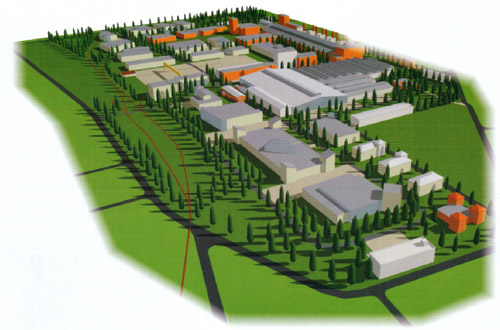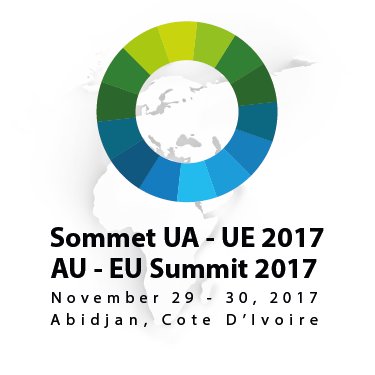The fifth African Union – European Union (AU-EU) summit under the theme “Investment in Youth for Accelerated Inclusive growth and sustainable development”, took place from 29-30 November 2017 in Abidjan, Côte d’Ivoire.
The Summit preliminaries began on Sunday (November 26) with the opening of the two day Permanent Representatives Committee and Senior Officials meetings where draft agendas and programs were prepared for endorsement by the meeting of the Ministers. The pre-summit Senior Officials meeting was attended by Ambassadors of the African Union Member States, high officials from the AU Commission and representatives from the European Union Member States.
The Representative of the European Union, Mr Koen Vervaeke, Managing Director, Africa European External Action Service (EEAS) and Mr. Stefano Manservisi, European Commission’s Director General for International Cooperation and Development (DEVCO) both underlined the importance of the summit to the AU and EU Member States and emphasized the expectations that the Summit would take concrete commitments in the best interest of their respective populations to help face current socio-economic and political challenges.
Addressing the Senior Officials on behalf of the AU Commission, Alex Ratebaye, Deputy Chief of Staff in the Bureau of the AUC Chairperson, underscored the importance of their meeting, stressing it would help shape discussions on the various priority thematic issues during the summit, notably youth development, the fight against terrorism, good governance, and integration.
The Chairperson of the Permanent Representatives Committee (PRC), Mrs. Sidibe Fatouma Kaba, recalled the historic ties between Africa and Europe which explained why both continents were interested to improve the living conditions of their populations within the context of the AU-EU Strategic Partnership. She noted that, in line with the African Union Theme for 2017, “Harnessing the Demographic Dividend Through Investments in Youth,” given that 60% of the African population is under the age of 25, the focus of the 5th AU-EU summit was on matters related to enhancing the opportunities for youth and offering concrete answers to the various initiatives and programs aimed at fostering youth development in both continents.
Among the sideline meetings in Abidjan was a NEPAD meeting which highlighted the need to use a multi-spectrum approach in addressing women and youth economic empowerment. NEPAD underlined the role that the private sectors could play in creating job opportunities to address the demand of youth has also been noted. It also emphasized the importance of Public-Private Producer Partnerships to economically empower women and youth.
The Joint AU-EU Ministerial Meeting opened with Foreign Ministers of African and European nations endorsing the draft agendas produced by the Senior Officials for the meeting of Heads of States. This was also attended by AU Commissioners, the High Representative of the European Union for Foreign Affairs and Security, and other high officials from the AU and the EU.
In his opening remarks, Deputy Chairperson of the AU Commission, Ambassador Dr. Kwesi Quartey, said “The African Union (AU) and its Member States strive to create economic opportunities through regional integration, trade facilitation, and provision of an enabling investment environment.” He noted that the geographic proximity and long historical relationship between Europe and Africa could be of great strategic advantage to the joint AU-EU partnership. The 5th AU-EU Summit‘s theme, he said, reinforced the theme of the African Union for the year of 2017 “Harnessing the demographic dividend through investing in youth. He underlined Africa could achieve the goals it had set and benefit from partnerships such as the one with EU by embracing good governance, the rule of law and democracy. The Chair commended the pledge made by EU to mobilize Foreign Direct Investment worth 40 billion euros and the G20 Compact with Africa aimed to promote private investment and investment in infrastructure. Using the Joint Africa-EU Strategy (JAES), Ambassador Quartey said, “we will focus on four key priority areas of cooperation: Investing in people, Strengthening resilience, Mobilizing investment and Migration and Mobility”.
Ms. Frederica Mogherini told the meeting that the summit would offer a key opportunity to strengthen political and economic ties between the two continents as well as exchange views on investing in youth for a sustainable future. She said the summit would provide a platform for both parties to take stock of the achievements and challenges regarding the implementation of the priority areas stipulated in the joint strategic partnership. She said the Summit would open a new chapter for the growing ties of the two continents, and emphasized it was a good platform where “we could share and react to global and regional agendas.” The Summit was of high importance, she said, coming at a critical and challenging time when multilateralism and multilateral institutions were facing challenges.
The two-day Heads of State and Government Summit opened on Wednesday (November 29). Among those attending were the Secretary General of the United Nations, António Guterres; Moussa Faki Mahamat, Chairperson of the African Union Commission; Jean-Claude Juncker, President of the European Commission; Chairperson of the African Union, Alpha Conde; and Federica Mogherini, High Representative of the European Union for Foreign Affairs and Security. Heads of State and Governments from both Africa and Europe included German Chancellor Angela Merkel; Ethiopian Prime Minister, Hailemariam Dessalegn; French President Emannuel Macron; South African President Jacob Zuma; Spanish Prime Minister, Mariano Rajoy; Rwanda’s Paul Kagame and Ghana’s Nana Akufo-Addo as well as other leaders.
Libya, and the situation of migrants, was high on the agenda, and the Summit condemned in strongest terms the alleged crimes perpetrated in Libya. The meeting commended an initiative by the AUC Chairperson along with IOM and the Presidential Council and the Government of National Accord of Libya, and the Summit pledged its full support. Leaders committed themselves to work together with the AU, UN, EU, the Libyan government and countries of origin and transit, to find lasting resolution to the issue of African migrants. The meeting underlined that the issue was closely linked to addressing the root causes of the problem and required a political solution to the persistent crisis in Libya. The Summit stressed the imperative need for coordinated action involving all the stakeholders concerned, especially the African Union, the United Nations, the European Union and the League of Arab States.
The United Nations Secretary General, the Chairperson of the African Union Commission, Moussa Faki Mahamat, the President of the European Commission, and the EU High Representative met on the margins of the Summit to discuss concrete steps. They agreed to put in place a joint EU-AU-UN Task Force to save and protect lives of migrants and refugees along the routes and in particular inside Libya, accelerating assisted voluntary returns to countries of origin, and resettlement of those in need of international protection. This will build on, expand and accelerate the ongoing work done by countries of origin, and the IOM. The work of the Task Force will be closely coordinated with the Libyan authorities and be part of the overall joint work that the African Union and the European Union, and the United Nations, will intensify to dismantle traffickers and criminal networks, and to offer opportunities of development and stability to countries of origin and transit, tackling root causes of migration.
The other strategic priorities of the Summit included: Investing in people, through education, science, technology, and skills development; Strengthening Resilience, Peace, Security, and Governance; Migration and mobility and Mobilizing investments for African structural sustainable transformation. This last priority is seen by many as having the potential to transform Africa in the way that the Marshal Plan rebuilt Europe after the Second World War. This Summit is the third to be held in Africa and the first in sub-Saharan Africa. Participants discussed progress made in the implementation of the 2014-2017 action plan adopted at the previous Brussels Summit and the way forward for defining the Africa-EU Joint Strategy in the light of the new issues facing both continents.
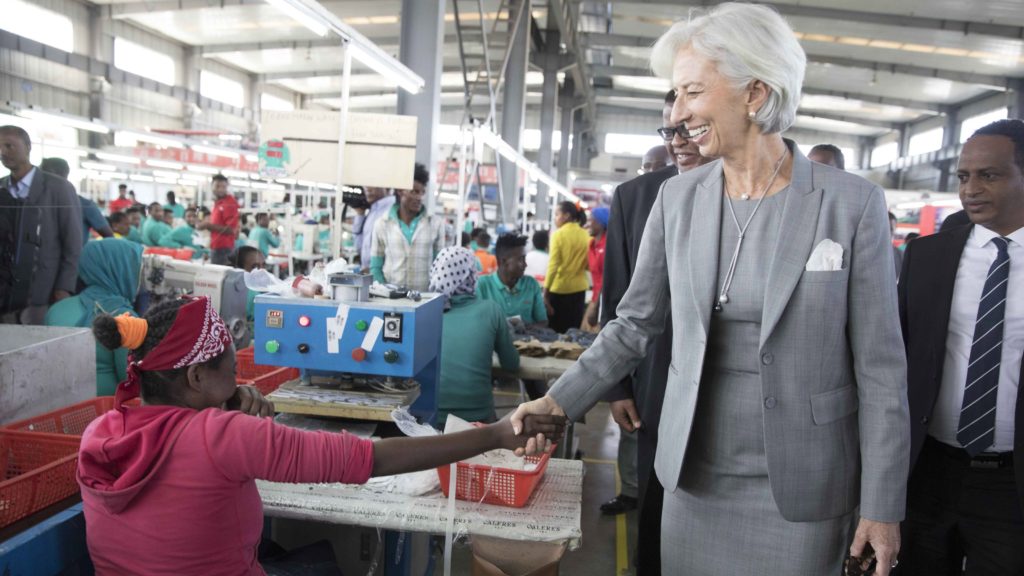 On 13 December 2017, International Monetary Fund (IMF) Managing Director, Christine Lagarde, arrived in Ethiopia for a historic three-day visit, touring new industrial parks and meeting with government officials. This is the first time in the IMF’s 72-year history that a managing director paid a visit to the Ethiopian capital, as a demonstration of Ethiopia’s growing recognition as an economic hub of Africa.
On 13 December 2017, International Monetary Fund (IMF) Managing Director, Christine Lagarde, arrived in Ethiopia for a historic three-day visit, touring new industrial parks and meeting with government officials. This is the first time in the IMF’s 72-year history that a managing director paid a visit to the Ethiopian capital, as a demonstration of Ethiopia’s growing recognition as an economic hub of Africa.
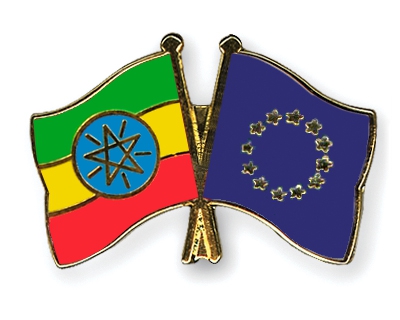
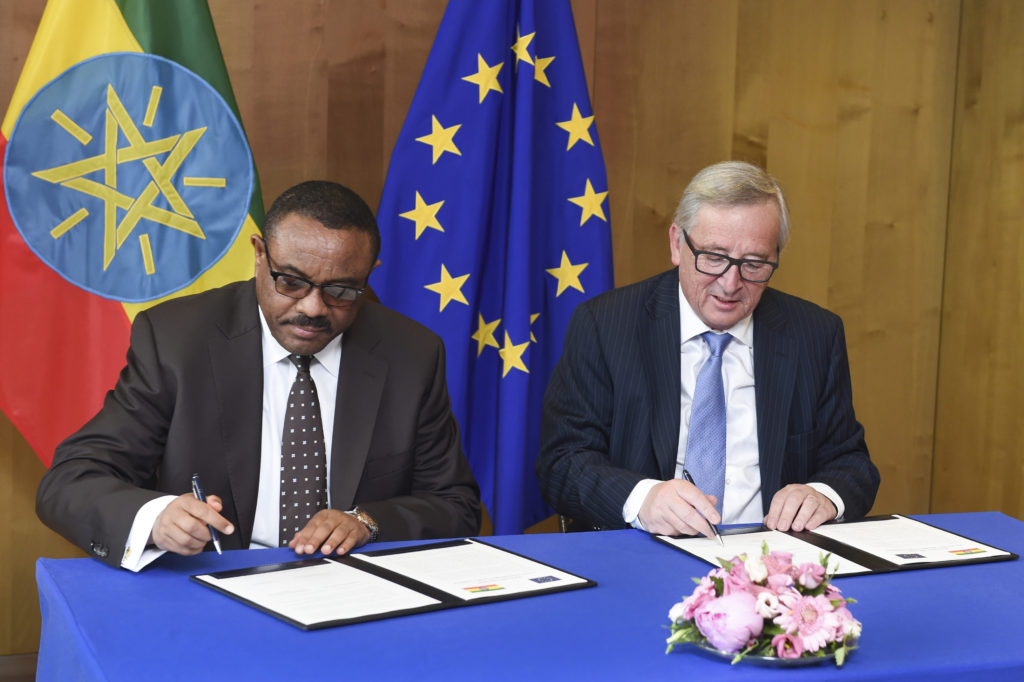

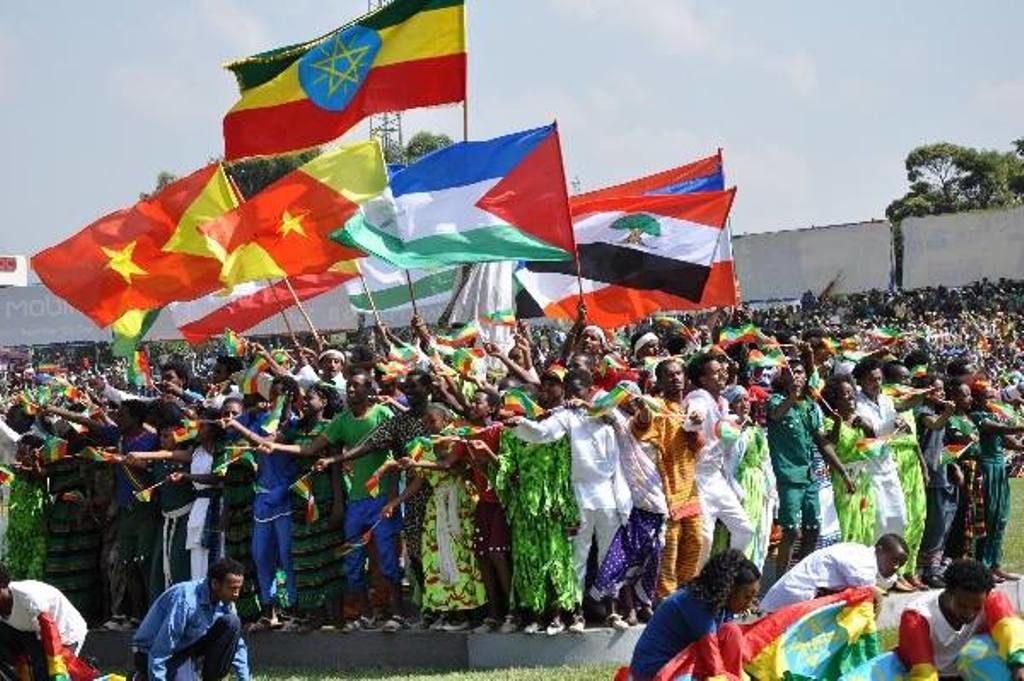
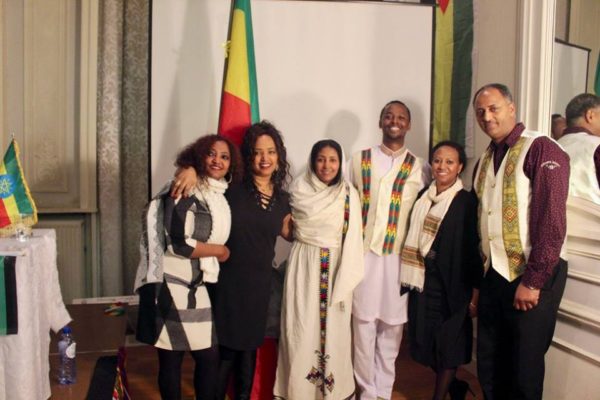
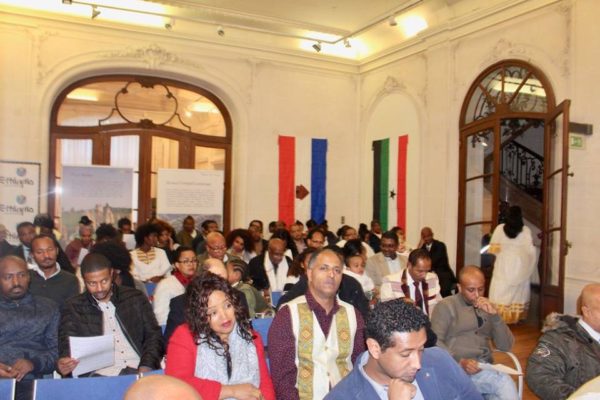
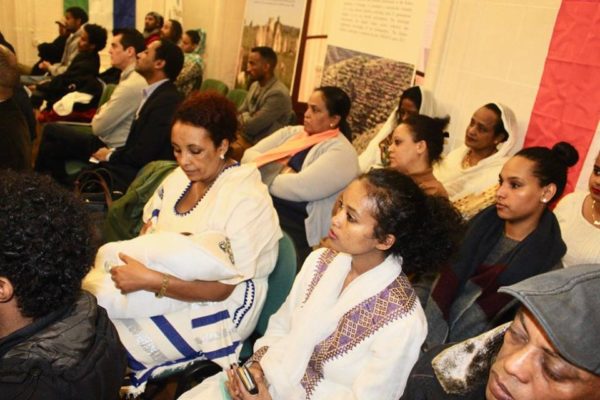
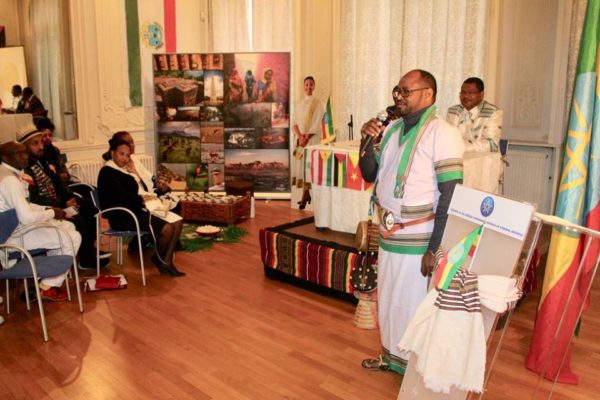
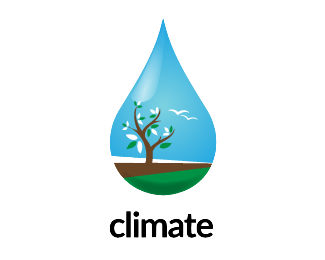
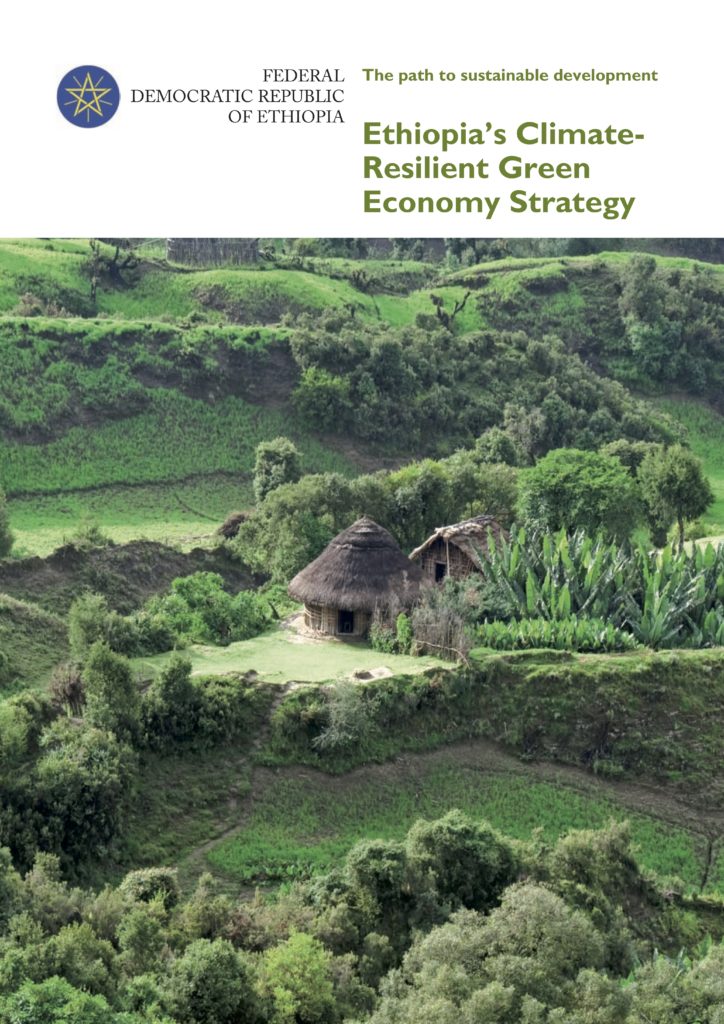 Despite being a developing country, Ethiopia has been playing a leading role in climate change negotiations. It has become a country that is engaged in successful climate diplomacy so that the voice of developing countries is heard in various international arenas. Ethiopia is also a model country in implementing a green economy development strategy.
Despite being a developing country, Ethiopia has been playing a leading role in climate change negotiations. It has become a country that is engaged in successful climate diplomacy so that the voice of developing countries is heard in various international arenas. Ethiopia is also a model country in implementing a green economy development strategy.